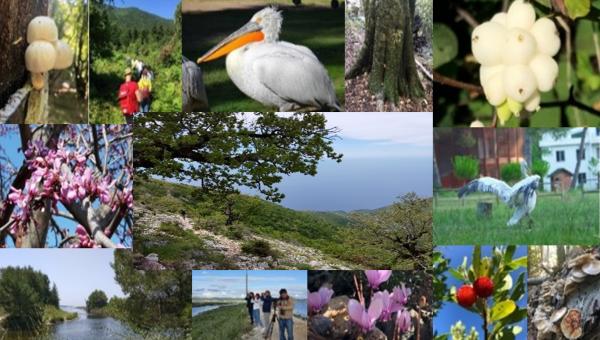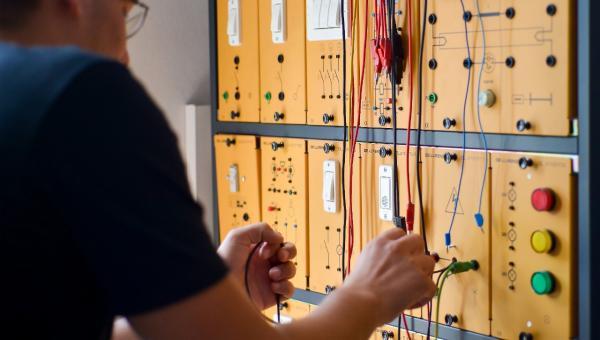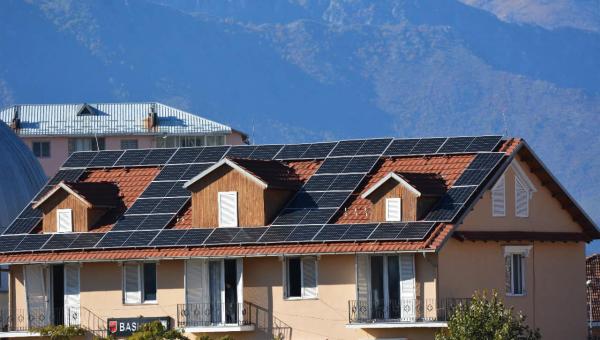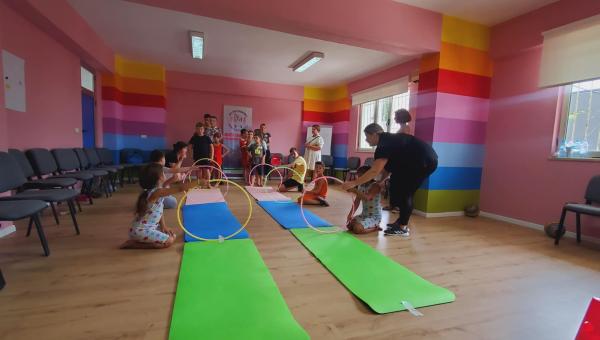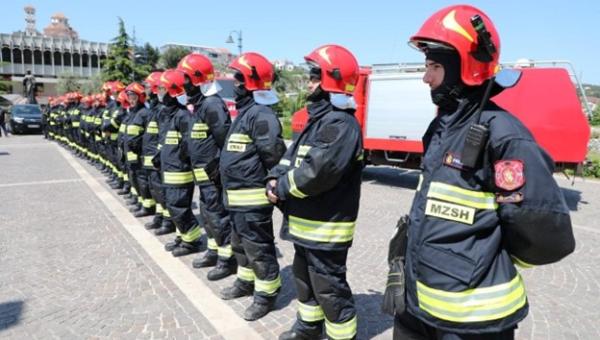UNDP Albania
“Croatia Education Recovery Support” (CERS)
Summary
“Croatia Education Recovery Support” (CERS) addressed education sector recovery process after the earthquake of 26 November 2019 in Albania. It aimed to support Albanian citizens in the Municipality of Krujë to improve their education outcomes. The project was part of the Croatian Government’s financial commitment during the International Donor’s Conference, organized in Brussels on 17 February 2020 and was guided by the nine principles of engagement foreseen in the Statement of Intent at the occasion of this Conference, namely: consistency, clarity, participation, transparency, accountability, equity, efficiency, resiliency and sustainability. It is implemented by UNDP, in cooperation with the Albanian Government.
The project aimed to deliver rapid assistance to help restore one education facility and its services in local communities in Fushë-Krujë, Kruja Municipality in order to ensure pupils and communities don’t lose minimum education services, and to enable the gradual normalization of life of affected population in those municipalities, with education the foremost priority.
The overall objective of the projects was to support national and local governments in reducing further social and economic losses, and to accelerate the recovery process through education facility reconstruction.
The specific objectives were:
(i) To support repairing and reconstruction, including basic furnishing of education facilities in municipalities affected by the earthquake according to the EU standards
(ii) To provide increased transparency, accountability and inclusiveness to the recovery process
(iii) And to improve capacities of central and local governments in accelerating the recovery processes according to the highest EU international standards.
The proposal focused on restoring service delivery capacity and ensuring the shortest possible interruption in access to essential services, in particular for vulnerable groups, while using the recovery to the earthquake as opportunity to increase the resilience of the education system and accelerate modernization of service delivery in the affected areas.
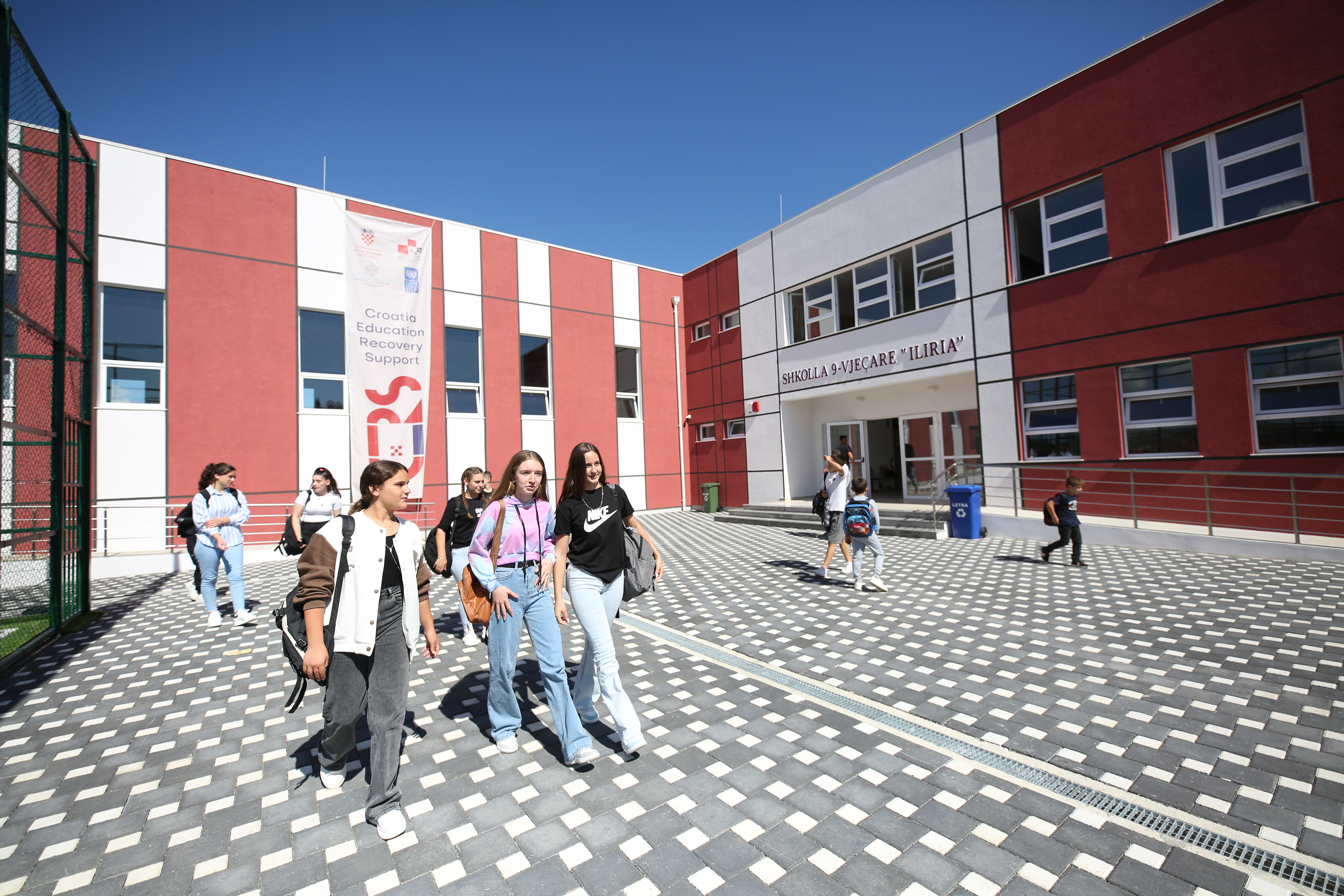
The newly built school
Background
The 6.4 magnitude earthquake that hit Albania on 26 November 2019, has left 51 people dead and injured thousands. It was the strongest earthquake to hit Albania in more than 40 years. Eleven municipalities, namely Shijak, Durrës, Krujë, Tiranë, Kamëz, Kavajë, Vorë, Rrogozhinë, Kurbin, Mirditë and Lezhë, with an approximate population of 1,185,286 persons, have suffered to varying degrees from the earthquake. For the first time in recent history, the Government of Albania announced a State of Natural Emergency in the prefectures/regions of Tirana, Durrës and Lezha. In order to identify the damages, losses and recovering needs arising from the earthquake, the Government of Albania in partnership with United Nations, European Union and World Bank undertook a full and comprehensive Post-Disaster Needs Assessment (PDNA).
The sectors assessed by PDNA are health, education, housing, productive sectors, infrastructure, social protection and civil protection and disaster risk reduction. According the PDNA, the total effect of the disaster in the 11 municipalities amounts to 985.1 million EUR (121.21 billion ALL), of which 843.9 million EUR (103.84 billion ALL) represents the value of destroyed physical assets and 141.2 million EUR (17.37 billion ALL) refer to losses. While the total recovery needs are 1,076.15 billion EUR (132.4 billion ALL) across all sectors and for the 11 affected municipalities.
One of the most damaged sectors is the education sector. Damages were reported to 321 educational institutions (all types including dormitories) in the 11 affected municipalities, representing 24% of all educational establishments.
“Iliria” 9-year school is situated in north area of Fushë-Krujë Administrative Unit, Kruja Municipalit, specifically 4.5 km from Fushë-Krujë centre.
Major achievements
The project achieved the following results:
Result 1: “Iliria” 9-year school education facility reconstructed and furnished.
Result 2: Strengthened transparency, accountability and inclusiveness in this process of recovery.
Project Outcome
- A Memorandum of Understanding is signed between UNDP and Kruja Municipality to define rights and obligations for the implementation of the project.
- A consultation meeting with the participation of 41 representatives of parents, teachers, communities, local authorities etc. is organized, aiming to involve the above participants on the selection of the design they want for their school in order to build back better and build back together through community engagement.
- Technical survey to assess the actual conditions of the existing education facility and a cost estimate is done from the consulting company.
- Two meetings of Steering Committee were organized. The first one on the 25th of May 2021 and the second one on the 8th of February 2022.
- A place check was organized on the 7th of July 2022 where all participants completed a satisfaction survey: the school director, teachers and pupils were fully satisfied as per forms and data collected.
- Furnishing and equipping the school was completed (including furniture, IT equipment, supplies and equipment for the bio-chemistry laboratory, books for the library, training equipment for the gym as well).
- The civil works ended on the 5 September 2022 and the facility (school and kindergarten) welcomed pupils, kids and teachers in the new academic year (2022 -2023).
Related Materials
Impact
Explore other UNDP's projects in Albania

 Locations
Locations






